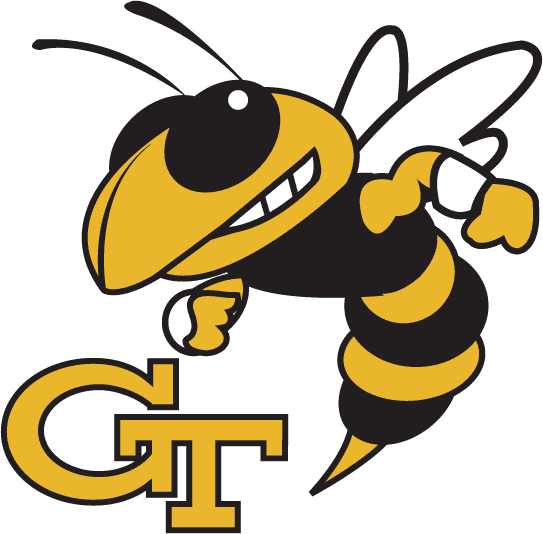Incremental Sampling-Based Algorithms and Stochastic Optimal Control on Random Graphs
Motion planning and trajectory generation problems are at the at the core of all autonomous and robotic systems. Although – at least in theory – such problems can be solved using optimal control or dynamic programming, the computational complexity for realizing these solutions is still prohibitive for many real-life problems, especially for high-dimensional systems. Recently, randomized algorithms have been proposed, which promise to remedy the “curse of dimensionality” associated with more traditional, deterministic methods. This is achieved by avoiding the a priori gridding of the search space, and under certain conditions they even ensure optimality, at least asymptotically. Nonetheless, three main bottlenecks hinder the broader applicability of these randomized algorithms: the need for more efficient sampling strategies, the need to avoid the computationally expensive collision checking, and the lack of fast and near-optimal solutions of the so-called “local steering” problem, especially for the case of nonholonomic or underactuated nonlinear dynamic systems. In this research we propose to eliminate these three bottlenecks by utilizing ideas from machine learning and spectral methods for random walk operators on graphs. Furthermore, we maintain that the proposed algorithms are easily parallelizable in order to take full advantage of recent technological advances in multi-core computer architectures and GPUs.
Sponsors
This project is sponsored by NSF and ARL.
Selected Publications
- Arslan, O., Berntorp, K., and Tsiotras, P.,"Sampling-based
Algorithms for Optimal Motion Planning Using Closed-loop Prediction,''
International Conference on Robotics and Automation, Singapore,
May. 12-14, 2017, pp. 4991-4996, doi:
10.1109/ICRA.2017.7989581

- Hauer, F., and Tsiotras, P., "Deformable
Rapidly-Exploring Random Trees,'' Robotics: Science and Systems,
Cambridge, MA, July 12-16, 2017.

- Joshi, S. and Tsiotras, P., "Non-Parametric Informed Exploration for Sampling-Based Motion Planning," International Conference on Robotics and Automation, Montreal, Canada, May 20–24, 2019, pp. 5915-5921, doi: 10.1109/ICRA.2019.8793933.
- Joshi, S., Hutchinson, S., and Tsiotras, P., "TIE: Time-Informed
Exploration for Robot Motion Planning,''
IEEE Robotics and Automation Letters, Vol. 6, No. 2, pp. 3585-3591, 2021, doi: 10.1109/LRA.2021.3064255 - Arslan, O. and Tsiotras, P., "Use of Relaxation Methods in
Sampling-Based Algorithms for Optimal Motion Planning," IEEE
International Conference on Robotics and Automation, Karlsruhe,
Germany, May 6-10, 2013, pp. 2413-2420, doi:
10.1109/ICRA.2013.6630906.

- Arslan, O., and Tsiotras, P., "Machine
Learning Guided Exploration for Sampling-based Motion Planning
Algorithms,'' IEEE/RJS International Conference on Intelligent
Robots and Systems, Hamburg, Germany, September 28-October 3, 2015,
pp. 2646-2652, doi:
10.1109/IROS.2015.7353738

- Arslan, O., and Tsiotras, P., "Incremental Sampling-based Motion
Planners using Policy Iteration Methods,''
55th IEEE Conference on Decision and Control, Las Vegas, NV, Dec. 12-14, 2016, pp. 5004-5009,
doi: 10.1109/CDC.2016.7799034
- Hauer, F., and Tsiotras, P., "Deformable
Rapidly-Exploring Random Trees,'' Robotics: Science and Systems,
Cambridge, MA, July 12-16, 2017.

- Lim, J., and Tsiotras, P., "MAMS-A*: Multi-Agent Multi-Scale A*,'' International Conference on Robotics and Automation, Paris, France, May 31-June 4, 2020, doi: 10.1109/ICRA40945.2020.9197045
- Lawson, R. C, Wills, L., and Tsiotras, P., "GPU Parallelization of Policy Iteration RRT#, "International Conference on Intelligent Robots and Systems, Las Vegas, NV, Oct. 25-29, 2020, doi:10.1109/IROS45743.2020.9341411
- Joshi, S., and Tsiotras, P., "Relevant Region Exploration on General Cost-Maps for Sampling-Based Motion Planning,'' International Conference on Intelligent Robots and Systems, Las Vegas, NV, Oct. 25-29, 2020, doi:10.1109/IROS45743.2020.934080
- Lim, J., and Tsiotras, P., "A Generalized A* Algorithm for Finding Globally Optimal Paths in Weighted Colored Graphs," International Conference on Robotics and Automation, Xi'an, China, May 30-June 5, 2021, doi:10.1109/ICRA48506.2021.9561135
- Zheng, D., and Tsiotras, P., "Sampling-based Kinodynamic Motion Planning Using a Neural Network Controller,'' AIAA SciTech Forum, Guidance, Navigation, and Control, Nashville, TN, Jan. 11-15, 2021. doi: 10.2514/6.2021-175
- Joshi, S., Hutchinson, S., and Tsiotras, P., "TIE: Time-Informed Exploration for Robot Motion Planning,'' International Conference on Robotics and Automation, Xi'an, China, May 30-June 5, 2021, doi:10.1109/LRA.2021.3064255
- Lim, J., Salzman, O., and Tsiotras, P., "Class-Ordered LPA*: An Incremental-Search Algorithm for Weighted Colored Graphs,'' IEEE/RSJ International Conference on Intelligent Robots and Systems, Prague, Czech Republic, Sept. 27-Oct. 1, 2021, doi: 10.1109/IROS51168.2021.9636736
Movies
- Anthropomorthic robot motion planning (6dof)
- Anthropomorthic robot motion planning (12dof)
- Manipulator planning using DRRT
- Implementation of CL-RRT# on Mars Rover at JPL

